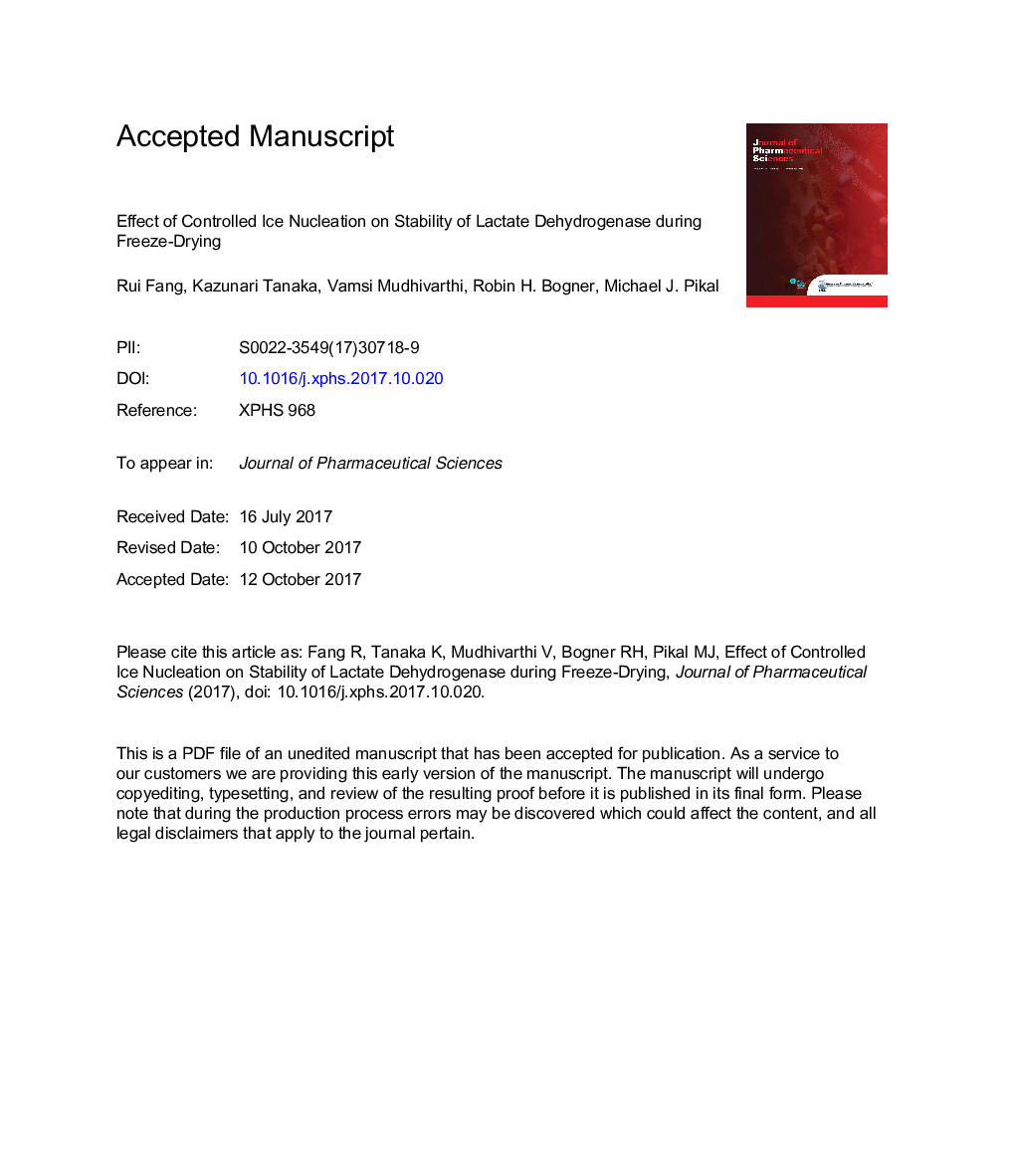| Article ID | Journal | Published Year | Pages | File Type |
|---|---|---|---|---|
| 8513398 | Journal of Pharmaceutical Sciences | 2018 | 28 Pages |
Abstract
Several controlled ice nucleation techniques have been developed to increase the efficiency of the freeze-drying process as well as to improve the quality of pharmaceutical products. Owing to the reduction in ice surface area, these techniques have the potential to reduce the degradation of proteins labile during freezing. The objective of this study was to evaluate the effect of ice nucleation temperature on the in-process stability of lactate dehydrogenase (LDH). LDH in potassium phosphate buffer was nucleated at â4°C, â8°C, and â12°C using ControLyo⢠or allowed to nucleate spontaneously. Both the enzymatic activity and tetramer recovery after freeze-thawing linearly correlated with product ice nucleation temperature (n = 24). Controlled nucleation also significantly improved batch homogeneity as reflected by reduced inter-vial variation in activity and tetramer recovery. With the correlation established in the laboratory, the degradation of protein in manufacturing arising from ice nucleation temperature differences can be quantitatively predicted. The results show that controlled nucleation reduced the degradation of LDH during the freezing process, but this does not necessarily translate to vastly superior stability during the entire freeze-drying process. The capability of improving batch homogeneity provides potential advantages in scaling-up from lab to manufacturing scale.
Keywords
Related Topics
Health Sciences
Pharmacology, Toxicology and Pharmaceutical Science
Drug Discovery
Authors
Rui Fang, Kazunari Tanaka, Vamsi Mudhivarthi, Robin H. Bogner, Michael J. Pikal,
